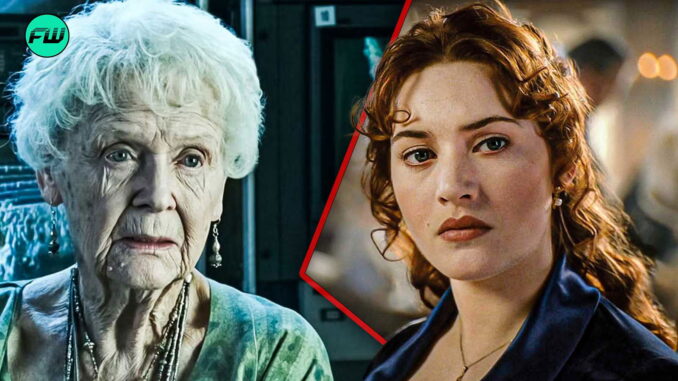
The Unseen Grace: How an Alternate Ending Could Have Redeemed Rose DeWitt Bukater
The image is indelible: the frigid North Atlantic, the splintered flotsam, and a young woman clinging to a door, her lover slowly succumbing to the icy embrace of the sea. For decades, the ending of James Cameron’s Titanic has fueled a particular, persistent firestorm of debate, often aimed squarely at Kate Winslet’s Rose DeWitt Bukater. "There was room on that door!" has become the battle cry of armchair critics, transforming a traumatized survivor into a perceived villain, selfishly hoarding a makeshift raft while Jack Dawson slipped away. Her subsequent life, seemingly lived without a visible burden of grief for her lost love, and her dramatic, almost flippant tossing of the Heart of the Ocean into the depths at the film’s conclusion, only cemented this narrative for many. Yet, a little-known alternate ending exists, a quiet, profound moment that, had it been included, would have shown Rose not as a callous survivor, but as a woman of immense wisdom, grace, and a deep, empathetic connection to the very world she had ostensibly spurned.
The final cut of Titanic sees a 101-year-old Rose, having recounted her epic tale, wander alone to the stern of Brock Lovett’s research vessel. With a knowing smile, she clutches the infamous Heart of the Ocean, the very jewel Lovett has spent a lifetime seeking. She closes her eyes, opens her hand, and lets the magnificent diamond plummet into the churning depths, a final, secret act of release. For many, this scene feels almost like a slap in the face: a valuable historical artifact, dismissed with a shrug, and Brock Lovett’s life’s work rendered utterly moot. It plays into the perception of Rose as someone who moves on with perhaps too much ease, too little reverence for what others value, even for the memory of Jack (who, it is argued, might have wanted her to sell it and live well). She appears aloof, almost mischievous, and decidedly unsympathetic to the expedition's efforts.
The alternate ending, however, paints a vastly different picture. Instead of a solitary, clandestine act, Old Rose is confronted on the deck by Brock Lovett and his crew, including her granddaughter Lizzy. Lovett, desperate, practically begs her to reveal the jewel’s whereabouts. Rose, no longer mysterious, calmly produces the necklace. The air crackles with anticipation. Lovett, almost reverently, reaches for it, his life's quest within his grasp. But Rose doesn't just hand it over. Instead, she holds it out, allowing him to grasp it, to feel its incredible weight and cool surface for a fleeting, electrifying second.
It is in this shared moment, this brief communion over a material object imbued with so much history and personal meaning, that Rose's character is profoundly transformed. "You look for treasures in the wrong place, Mr. Lovett," she says, her voice clear and resonant, her gaze unwavering. "Only life is priceless." And with that, she gently, deliberately, takes the necklace back from his hand, looks out at the vast ocean, and offers it to the waves. But this time, Brock Lovett doesn't react with anger or disbelief. Instead, he lets out a startled, almost cathartic laugh. It's a laugh of understanding, of grudging admiration, perhaps even of a profound shift in his own perspective. Lizzy, too, smiles, a silent testament to her grandmother’s wisdom.
This nuanced exchange redefines Rose’s act from one of dismissive arrogance to one of profound philosophical statement. By allowing Brock to touch the jewel, she acknowledges his pursuit, validating his passion even as she transcends it. She doesn't withhold; she shares the moment of discovery, granting him a fleeting "victory" before demonstrating that the true victory lies not in possession, but in life itself. Her words, "Only life is priceless," become the culmination of her entire journey, a hard-won truth gleaned from the depths of tragedy and a testament to the love that saved her. It’s a moment of teaching, of mentorship, where she elevates Lovett’s materialistic quest to a higher, humanistic plane. His subsequent laughter signifies not defeat, but enlightenment. He understands, on a visceral level, that the true treasure was never the diamond, but the story, the life, the memory – a realization facilitated by Rose’s compassionate yet firm guidance.
Had this ending been included, the image of Rose would be forever altered. She wouldn't be the perceived villain, heartlessly discarding a fortune or disdaining a man's life work. Instead, she would emerge as a sage, a survivor who understood the true value of existence, and a gracious teacher who could impart that wisdom even to those who initially sought only material gain. Her act of relinquishing the jewel would not be one of indifference, but of ritual, a final, respectful offering to the ocean that cradled her love and carried her to a new life, a sacred act understood and even affirmed by those around her. The alternate ending strips away the accusation of selfishness, replacing it with an undeniable aura of grace, wisdom, and a profound understanding of what truly matters, transforming Rose DeWitt Bukater from a figure of debate into an undeniable embodiment of life's most priceless treasure.